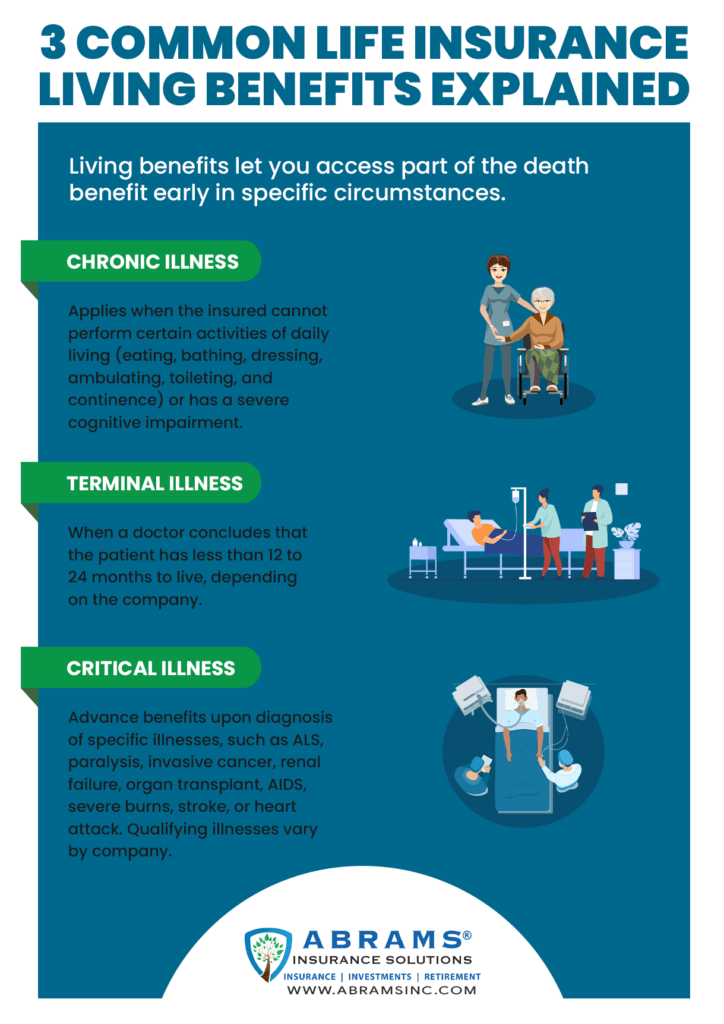Can I Sue for Lost Wages After a Car Accident?
If you are injured in a car accident, you’ll want to speak with an attorney to discuss what kind of compensation you can go after. One type of compensation is lost wages. If you are not able to work because of your injuries, you may be entitled to compensation for the wages you have lost.
There are a few states that have no-fault insurance laws. This means that drivers are required to carry personal injury protection, or PIP, insurance. PIP insurance covers lost wages and medical expenses, regardless of who is at fault for the accident. If you live in a no-fault state, you may be able to file a claim with your own insurance company for lost wages.
If you live in a fault state, meaning you can sue the person responsible for your injuries, you will need to prove that the other driver was negligent and that their negligence caused your injuries. You will also need to prove the amount of wages you have lost as a result of your injuries.
An attorney can help you determine if you are entitled to compensation for lost wages and can help you file a claim. You shouldn’t have to pay anything upfront, most attorneys work off contingency basis.
Can I Sue for Lost Wages After a Car Accident?
After a car accident, you may be wondering if you can sue for lost wages. The answer to this question depends on several factors, including the severity of your injuries, whether you were at fault for the accident, and the laws in your state.
What Are Lost Wages?
Lost wages are the wages you would have earned if you had not been injured and unable to work. This includes not only your regular wages, but also any overtime, bonuses, or other compensation you would have received.
Proving Lost Wages
In order to prove lost wages, you will need to provide documentation of your earnings from the past year. This can include pay stubs, tax returns, or letters from your employer. You will also need to provide evidence that your injuries prevented you from working. This could include doctor’s notes or statements from your employer.
Filing a Lawsuit
If you believe you are entitled to lost wages, you may need to file a lawsuit. The process of filing a lawsuit can be complex, so it is important to speak to an attorney to discuss your options.
Speaking with an Attorney
If you have been injured in a car accident, it is important to speak to an attorney to discuss your rights. An attorney can help you determine if you are entitled to lost wages and can help you file a lawsuit if necessary.
Additional Resources
- How to Get Compensation for Lost Wages After a Car Accident
- Car Accident Lawsuit: Can I Sue for Lost Wages?
- What Are Lost Wages?
Can I Sue for Lost Wages After a Car Accident?
If you’ve been injured in a car accident, you may be wondering whether you can sue for lost wages. The answer is: it depends. In most cases, you will be able to sue for lost wages if you can prove that the other driver was at fault for the accident and that your injuries prevented you from working.
What Are Lost Wages?
Lost wages are the wages you would have earned if you had not been injured in the accident. This includes not only your base wages, but also any overtime, bonuses, or other compensation you would have received.
How Do I Prove I Lost Wages?
You can prove you lost wages by providing documentation from your employer. This documentation can include:
* Pay stubs
* Time cards
* A letter from your supervisor stating your average weekly earnings and the number of hours you missed work due to your injuries.
If you are self-employed, you can prove lost wages by providing documentation of your income, such as tax returns or invoices. You can also provide a statement from your accountant or other financial professional.
In some cases, you may be able to claim lost wages even if you did not miss any work. For example, if you were injured in an accident and had to take time off to recover, you may be able to claim lost wages for the time you were unable to work at your full capacity.
How Much Can I Sue For?
The amount you can sue for will depend on the severity of your injuries and the amount of wages you lost. In general, you can sue for the following:
* Past lost wages
* Future lost wages
* Loss of earning capacity
How Long Do I Have to File a Lawsuit?
The statute of limitations for filing a personal injury lawsuit varies from state to state. In most states, you have two years from the date of the accident to file a lawsuit. However, there are some exceptions to this rule. For example, if you were injured in an accident with a government employee, you may have a shorter statute of limitations.
Can I Sue for Lost Wages After a Car Accident?
If you’ve been injured in a car accident and are unable to work, you may be wondering if you can sue for lost wages. The answer is yes, you may be entitled to compensation for the income you’ve lost due to your injuries.
What Qualifies for Lost Wages?
Lost wages are the wages you would have earned if you had not been injured in the accident. This includes:
- Salary or hourly wages
- Bonuses
- Commissions
- Overtime pay
- Any other form of compensation you would have received if you had been able to work
How Much Can I Sue For?
The amount you can sue for will depend on the severity of your injuries, the length of time you are unable to work, and your earning capacity. The following factors will be considered:
- Your pre-accident income
- The length of time you are expected to be unable to work
- The severity of your injuries
- The likelihood that you will be able to return to work in the future
- Your earning capacity (the amount of money you are expected to earn)
Calculating Lost Wages
To calculate your lost wages, you will need to determine the following:
- Your gross income (before taxes)
- The number of hours you would have worked per week if you had not been injured
- The number of weeks you are expected to be unable to work
Multiply your gross income by the number of hours you would have worked per week, and then multiply that number by the number of weeks you are expected to be unable to work. This will give you the total amount of lost wages you can claim.
Additional Damages
In addition to lost wages, you may also be able to sue for other damages, such as:
- Medical expenses
- Pain and suffering
- Loss of enjoyment of life
- Emotional distress
- Punitive damages (if the other driver was grossly negligent or reckless)
Contact a Lawyer
If you have been injured in a car accident and are unable to work, you should contact a lawyer to discuss your legal options. A lawyer can help you calculate your lost wages and other damages, and can represent you in court.
Can I Sue for Lost Wages After a Car Accident?
Whether or not you can sue for lost wages after a car accident is a common question with a complex answer. In general, it is possible to recover compensation for lost wages if you can prove that the other driver was negligent and that their negligence caused your injuries and your inability to work. Several factors can affect your chances of winning a lawsuit for lost wages, including the strength of your evidence, the legal arguments you present, and the skill of your attorney.
What Are My Chances of Winning?
Your chances of winning a lawsuit for lost wages will depend on several factors, including the strength of your evidence, the legal arguments you present, and the skill of your attorney. If you have strong evidence that the other driver was negligent and that their negligence caused your injuries and your inability to work, you have a good chance of winning your case. However, if the evidence is weak or if the other driver has a strong defense, your chances of winning may be lower.
What Evidence Do I Need?
To win a lawsuit for lost wages, you will need to provide evidence that the other driver was negligent and that their negligence caused your injuries and your inability to work. This evidence may include:
- A police report
- A medical report
- Witness statements
- Photographs of the accident scene
- Wage statements or other proof of lost income
How Do I Prove Negligence?
To prove negligence, you must show that the other driver owed you a duty of care, that they breached that duty, and that their breach of duty caused your injuries and your inability to work.
- Duty of care: All drivers owe other drivers a duty of care to drive reasonably. This means that they must obey the traffic laws and drive in a way that does not put other drivers at risk.
- Breach of duty: A driver breaches their duty of care when they drive negligently. Negligent driving can include speeding, running red lights, or driving under the influence of alcohol or drugs.
- Causation: You must also show that the other driver’s negligence caused your injuries and your inability to work. This means that you must prove that you would not have been injured if the other driver had not been negligent.
How Do I Calculate My Lost Wages?
To calculate your lost wages, you will need to add up all of the wages that you lost as a result of the accident. This includes your base wages, overtime pay, bonuses, and any other forms of compensation that you would have earned if you had not been injured. You can also include benefits that you lost, such as health insurance and retirement benefits.
How Can I Increase My Chances of Winning?
There are several things you can do to increase your chances of winning a lawsuit for lost wages. These include:
- Hiring an experienced attorney
- Gathering strong evidence
- Presenting a strong legal argument
- Being prepared to go to trial
If you have been injured in a car accident, you may be entitled to compensation for your lost wages. Contact an experienced attorney today to learn more about your rights.
Can I Sue for Lost Wages After a Car Accident?
You may be wondering if you can sue for lost wages after a car accident. The answer is: it depends. Here’s what you need to know.
Several factors can affect whether or not you have a case. For instance, you must prove that the other driver was at fault for the accident. You must also show that you lost wages as a result of the accident. This could include lost income from work, lost overtime pay, or lost bonuses.
If you are considering filing a lawsuit, it is crucial to speak with an attorney. An attorney can help you assess your case and determine if you have a valid claim. An attorney can also help you gather evidence, build a strong case, and negotiate a fair settlement.
Calculating Lost Wages
To calculate your lost wages, you will need to add up all of the income you lost as a result of the accident. This includes lost wages, lost overtime pay, and lost bonuses. You may also be able to claim compensation for lost future earnings if your injuries prevent you from returning to work.
Evidence You Need
When you are filing a lawsuit for lost wages, you will need to provide evidence to support your claim. This evidence could include:
- Pay stubs
- Tax returns
- A letter from your employer
- A statement from an accountant
Statute of Limitations
There is a time limit for filing a lawsuit for lost wages after a car accident. This time limit is known as the statute of limitations. The statute of limitations varies from state to state, so it’s important to speak with an attorney to find out the deadline in your state.
Here are some additional things to keep in mind
- You may be able to file a claim for lost wages even if you were not at fault for the accident.
- You may be able to recover lost wages even if you were not injured in the accident.
- You may be able to get a settlement without going to court.
Conclusion
If you have lost wages due to a car accident, you may be entitled to compensation. Speaking with an attorney can help you assess your case and determine the best course of action.




Leave a Reply